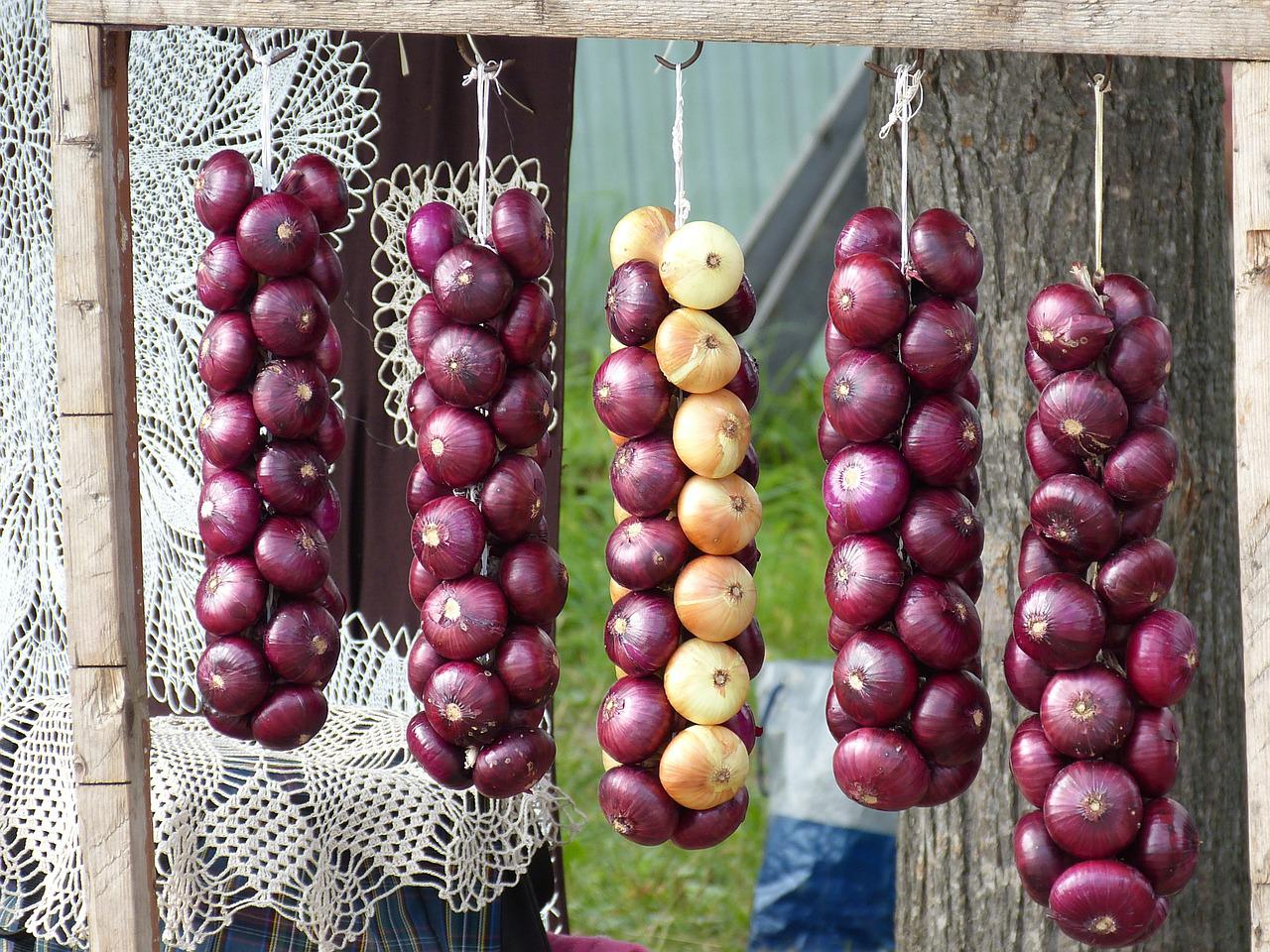Еда: Basic Russian Food Vocabulary
In this post we’ll build your Russian vocabulary by learning about everyone’s favorite language topic: Russian food terms! Russian food vocabulary will come in handy no matter why you’re learning Russian. First we’ll cover some basic expressions related to food. Then we’ll look at vocabulary for meals. Next we’ll see a lot of basic Russian vocabulary for food and drink. Finally, we’ll wrap up with related vocabulary for utensils and ways to describe your food. Let’s dig in.
Я голодна! / Я голоден! I’m hungry!
Let’s start to build your Russian vocabulary by learning some expressions that you’ll probably need to know that are related to Russian food vocabulary.
- Я голодна! (f) / Я голоден! (m)
I’m hungry. - Очень пить хочется.
I’m thirsty.
- Я хочу что-нибудь съесть.
I want something to eat. - Я хочу что-нибудь попить.
I want something to drink. - Я хочу перекусить.
I feel like a snack.
Ужин готов! Dinner is ready!
You probably want to know how to talk about meals when you’re using Russian food terms. The meals in Russian are: завтрак (m) (breakfast), обед (m) (lunch), and ужин (m) (dinner). A snack is что-нибудь перекусить. Dessert is десерт.
- Что на завтрак?
What’s for breakfast? - Что на обед?
What’s for lunch? - Что на ужин?
What’s for dinner? - Что на десерт?
What’s for dessert? - Я рано завтракаю.
I eat breakfast early. - Я обедаю с коллегами.
I eat lunch with colleagues. - Я ужинаю с семьёй.
I eat dinner with my family.
Что ты ешь? What are you eating?
Now let’s see some basic Russian vocabulary related to foods and beverages. We’ll divide these Russian food terms into sections.
Russian Food Vocabulary: Carbs and Protein
- хлеб (m) bread
- рис (m) rice
- макароны (pl) /вермишель (f) pasta
- лапша (f) noodles
- мясо (n) meat
- цыплёнок (m) /курица (f) chicken
- говядина (f) beef
- свинина (f) pork
- ветчина (f) ham
- баранина (f) lamb
- тофу (n) tofu
- рыба (f) fish
- морепродукты seafood
- креветка (f) shrimp
- краб (m) crab
- лобстер (m) lobster
- моллюск (m) clam
- кальмар (m) squid
- икра (f) caviar, roe
- гребешок (m) scallop
- устрица (f) oyster
More Russian Food Vocabulary: Vegetables, Fruit, Dairy
- овощи (pl) vegetables
- помидор (m) tomato
- лук (m) onion
- чеснок (m) garlic
- салат (m) lettuce
- шпинат (m) spinach
- спаржа (f) asparagus
- капуста (f) cabbage
- гриб (m) mushroom
- огурец (m) cucumber
- перец (m) pepper (as in bell)
- перец чили (m) chili pepper
- фрукт (m) fruit
- яблоко (n) apple
- груша (f) pear
- персик (m) peach
- апельсин (m) orange
- лемон (m) lemon
- виноград (m) grape
- клубника (f) strawberry
- банан (m) banana
- орех (m) nut
- арахис (m) peanut
- семя (n) , зерно (n) seed
- пшеница (f) wheat
- хлопья cereal
- соль (f) salt
- перец (m) pepper
- кунжут (m) sesame
- мёд (m) honey
- сахар (m) sugar
- соевый соус (m) soy sauce
- яйцо (n) egg
- молоко (n) milk
- сыр (m) cheese
- масло (n) butter
Russian Food Terms for Drinks, Sweets, and More
- вода (f) water
- чай (m) tea
- кофе (m) coffee
- вино (n) wine
- пиво (n) beer
- соевое молоко (n) soy milk
- мороженое (n) ice cream
- пирожное (n) cake
- пирог (m), пирожок (m) pie
- печенье (n) cookie
- конфета (f) candy
- есть/кушать to eat
- пить to drink
- готовить to cook
- пробовать to taste
- Я ем много риса.
I eat a lot of rice. - Вы пьете чай или кофе по утрам?
Do you drink tea or coffee in the morning? - Ты хорошо готовишь!
You cook well!
Можно стакан воды? Could I have a glass of water?
Now that you know some basic Russian food vocabulary, let’s see some phrases that will come in handy when you’re ordering food. Some vocabulary related to Russian food terms is: тарелка (f) plate, глубокая тарелка/миска (f) bowl, нож (m) knife, ложка (f) spoon, вилка (f) fork, палочки для еды chopsticks, чашка (f) cup, стакан (m) glass, салфетка (f) napkin.
- Можно салфетку/вилку/нож/ложку/палочки?
Could I have a napkin/fork/knife/spoon/chopsticks? - Можно стакан воды?
Could I have a glass of water? - Где вилки, ножи и ложки?
Where are the forks, knives, and spoons? - Вилки, ножи и ложки в ящике.
The forks, knives, and spoons are in the drawer. - Чистые стаканы – в шкафу.
The clean glasses are in the cabinet. - Кофейные чашки – на полочке.
The coffee cups are on the shelf. - Дай(те) салфетку пожалуйста./ Можно салфетку?
Could I have a napkin, please? - Пожалуйста поставь(те) чистые тарелки в шкаф.
Please put the clean plates in the cabinet.
Как ваша еда? How’s your food?
Let’s close with some Russian vocabulary that you can use to talk about your food: bкусно delicious, солёный salty, сладкий sweet, горький bitter, кислый sour.
- Вкусно.
It’s delicious. - Отлично.
It’s great. - Прекрасная еда.
This food is excellent. - Слишком жарко.
It’s too hot. - Слишком холодно.
It’s too cold. - Слишком сладко.
It’s too sweet. - Слишком солёное.
It’s too salty. - Это безвкусно.
It’s tasteless/bland. - Это переварено.
It’s overcooked. - Это недоварено.
It’s undercooked. - Это жирно.
It’s oily/greasy.
Do you want to learn Russian?
We hope you’ve enjoyed growing your Russian vocabulary with some Russian food terms. If you want to learn more, check out our other posts on Russian language, culture, and more. And if you’re looking for convenient and affordable live Russian lessons with a real teacher, check out The Language Garage Russian. Our lessons are given online in a virtual classroom, so it doesn’t matter where you live or work. We can come to you. And we have flexible options, with a free trial so that you can decide if there’s a fit. Check us out!






